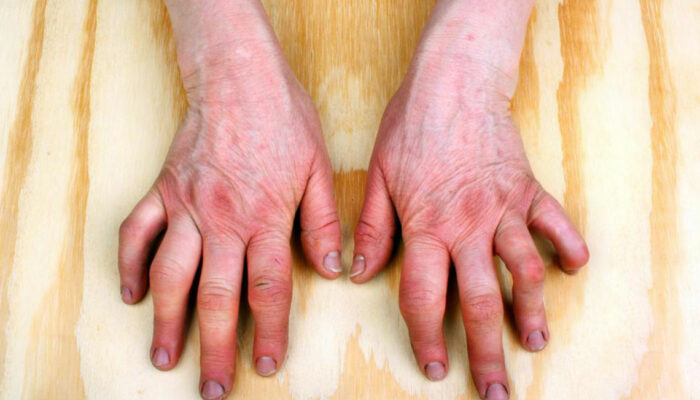Do you have psoriatic arthritis symptoms
Psoriatic arthritis, a form of arthritis, is an autoimmune condition that causes itchy and scaly rashes on the skin and nails. It is estimated that almost 30% of people with psoriasis also develop this type of arthritis. Psoriatic arthritis causes inflammation and stiffness in the joints of the body. Like typical arthritis signs, psoriatic arthritis symptoms may differ among patients.

However, they may experience periods of remission that alternate with flare-ups.
Symptoms
- Painful and swollen joints mostly the ankle, toes, fingers, knees and lower back. Constant pain in the lower back may also be a symptom of ankylosing spondylitis, which leads to the fusion of vertebrae.
- Gout-like symptoms in fingers may indicate psoriatic arthritis symptoms.
- Experiencing stiffness in joints when you get up in the morning or after resting for some time can be a psoriatic arthritis symptom. Many people with osteoporosis experience similar stiffness, but it should be investigated to rule out arthritis.
- Swelling up of fingers and toes are common arthritis symptoms and can be found in patients suffering from rheumatoid arthritis. However, in rheumatoid arthritis, the swelling may be restricted to a single joint; whereas in psoriatic arthritis, all fingers and toes can swell simultaneously.
- Chronic pain in tendons and ligaments are psoriatic arthritis symptoms due to which the patient develops tenderness in joints, most commonly in the heel or the foot or near the elbow accompanied with tennis elbow-like pain.
- Psoriatic arthritis symptoms also include skin rashes in which the skin may become thick, red, and flaky with degeneration of nails.
- The patient may experience more fatigue in the daily course of activities.
- Eye problems can include inflammation in the eyes, constant irritation, and disturbed vision.
- Patients may experience flares throughout the body as the immune system is affected and tissues are attacked.
In the long run, signs of psoriatic arthritis, if not treated, can cause interstitial lung disease, chronic inflammation of blood vessels, increase the risk of heart attacks, and also lead to depression and osteoporosis. So, ensure that you take timely measures to tackle this chronic health condition.
Disclaimer:
The content of the articles discussing symptoms, treatments, health conditions, and side effects is solely intended for informational purposes. It is imperative that readers do not interpret the information provided on the website as professional advice. Readers are requested to use their discretion and refrain from treating the suggestions or opinions provided by the writers and editors as medical advice. It is important to seek the help of licensed and expert healthcare professionals when necessary.





